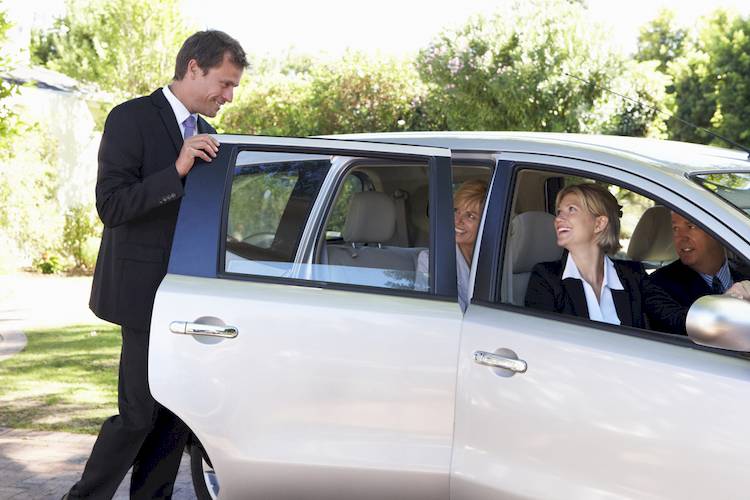

Car pool lanes have existed in America for a few centuries, and in the last 20 years they have boomed in popularity. Many of the country’s states have a large amount of car pool lanes, and there are currently more than 3,000 miles of these lanes nationwide. Since millions of Americans rely on freeways for their daily commute, a large number of commuters are able to take advantage of these car pool lanes to help avoid slow rush hour traffic.
Car pool (or HOV, for High Occupancy Vehicle) lanes are lanes on the freeway that are only for vehicles with multiple occupants. To drive in car pool lanes on most freeways you need to have at least two occupants (including the driver) in your vehicle at all times; however, some freeways and some counties raise the minimum to three or four occupants.
Motorcycles are also allowed to drive in car pool lanes, regardless of the number of occupants they have. Many states employ green initiatives that allow some alternative fuel vehicles (such as plug-in electric cars and gas-electric hybrids) to operate in the car pool lane, regardless of how many occupants they have. A few states also combine car pool lanes with express freeway lanes, where solo drivers are allowed to pay a toll in order to legally drive in the car pool lane.
During hours of high traffic, most of the cars on a freeway only have one occupant. This means that the car pool lane is usually devoid of congestion, even when the general access lanes are mired in bumper to bumper traffic. This allows the vehicles in the car pool lane to travel at a high speed, regardless of the flow of the rest of the freeway. People who opt to ride share to work (or anywhere else) are thus rewarded, and solo drivers are encouraged and incentivized to start carpooling.
As more and more people carpool, cars are removed from the road. This decreases traffic for everyone, reduces harmful carbon emissions, and lessens the damage that is done to the roads (which in turn lowers the road repair costs for taxpayers). In short, car pool lanes save drivers time and money, and also help the general traffic flow, road conditions, and the environment.
For states that choose to have car pool lanes, the traffic laws are crucial. Properly following the car pool lane rules allows the lane to operate smoothly and successfully, and keeps drivers from getting expensive tickets. Car pool lane rules vary from state to state, so be sure to familiarize yourself with the rules of whatever state you’re driving in.
Are there car pool lanes in West Virginia?
Even though car pool lanes have become very popular, there are currently no such lanes in West Virginia. The primary reason for the lack of car pool lanes is the lack of traffic in the state. West Virginia has no cities of more than 60,000 residents, which means there are no economic hubs where mass numbers of citizens commute to every morning. The driving in West Virginia is evenly spread out through the state, and there are no large areas of congestion.
West Virginia’s freeways were also built before the rise in car pool lane popularity, so the roads are not equipped for car pool lanes. In order to add car pool lanes to the state, general use lanes would need to be converted (which would be detrimental for traffic), or new lanes would need to be built (which would be costly).
Will there be car pool lanes in West Virginia anytime soon?
Since there are no large traffic concerns in West Virginia, it is unlikely that car pool lanes will be added to the state’s freeways anytime soon. The West Virginia Department of Transportation has researched the topic, and the addition of lanes will likely be on the table the next time the state undergoes a large freeway renovation project. Until that time, however, it would not make much sense for the state to add car pool lanes.
Car pool lanes save a lot of drivers time and money, but there’s not much need for them in West Virginia. If West Virginia commuters find themselves experiencing worse traffic in the future, hopefully the state will strongly consider adding car pool lanes to the major freeways.



